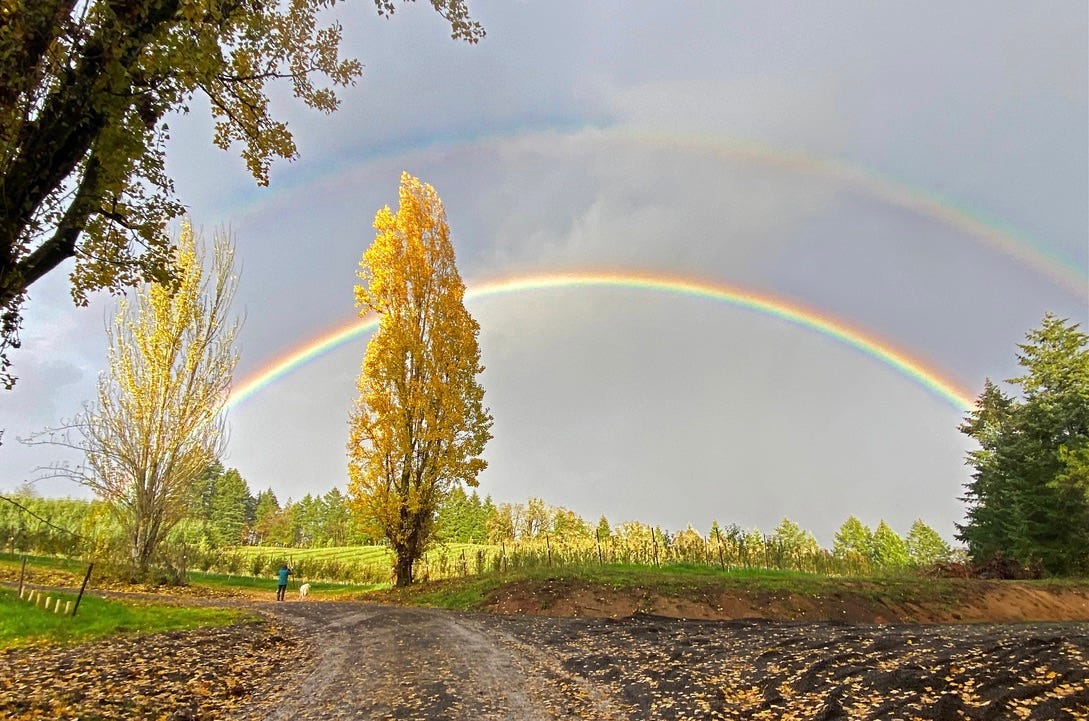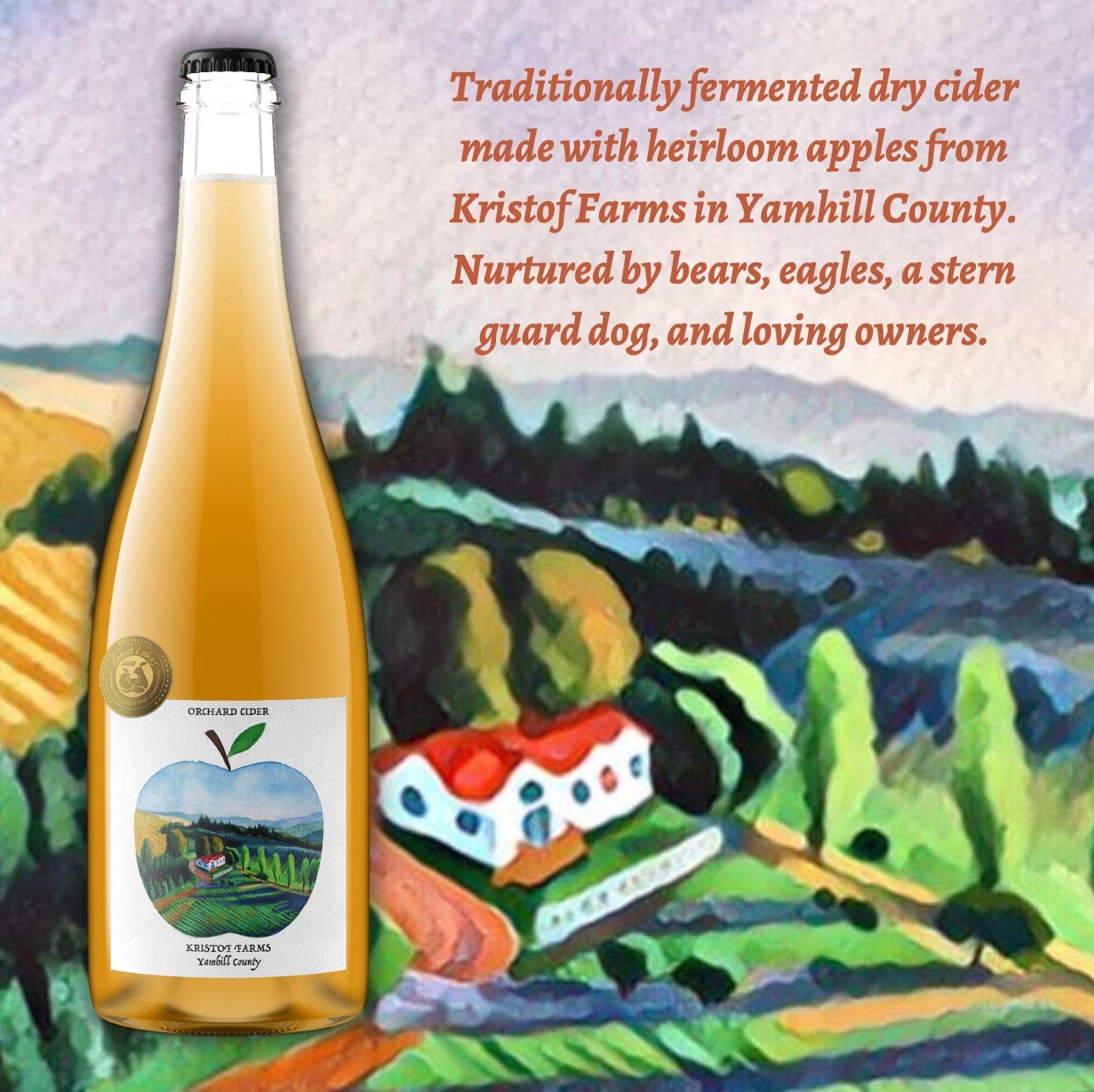Asking for Your Feedback on an Ethics Question
I've written a lot about the toll of addiction and alcoholism, and now I'm producing hard cider and wine grapes. How should I think about that?
Mostly on this platform I offer my own thoughts. This time, I’d welcome yours.
I’ve been wondering about an ethical issue, and I’m interested in how other people see it. The question is this: I’ve written for years about the toll of addiction and alcoholism on American society and the rising numbers of “deaths of despair,” yet on Kristof Farms I’m now producing hard cider and wine grapes. Is that hypocritical?
To press the case against me: I wouldn’t grow tobacco, even though I believe tobacco should be legal. I wouldn’t start a firearms company, even though guns have their role. Yet the latest CDC study finds that alcohol kills three times as many Americans as guns (140,000 to 45,000).
So if I’d be troubled by owning a tobacco or gun business, is it ethical to have an alcohol business? I’ll explain why I think it is, but I’d welcome your feedback.
The backdrop for us was that our farm historically had a cherry orchard, but then in 2018 the buyer said he couldn’t take our cherries any more. That’s also when my wife, Sheryl WuDunn, and I were reporting for our book “Tightrope,” about the struggles of working class America and the need for good rural jobs and economic development. So we decided to refocus the farm on agricultural crops with higher value-added that might support the community.
In our part of rural Oregon, we had seen how the wine industry had created good jobs, while spawning related jobs in tourism, retailing, restaurants and B&Bs. The nearby mill town of Carlton had been transformed, providing jobs to old friends. We hoped to contribute to something similar.
I also believe that a glass of good cider and wine can promote social networks and reduce social isolation, which is another crisis I’ve written about often. My friend Vivek Murthy, now the U.S. Surgeon General, has called loneliness “a growing health epidemic” that leads to stress, inflammation, heart disease and early death. Researchers say that this social isolation is even more associated with early death than obesity is, and that it is equivalent to smoking 15 cigarettes a day.
Cider or wine can chip away at that loneliness by nurturing friendships and building social capital and connections. It can bring people together. It can help people relax and reduce stress. It can nurture friendships, help people enjoy life, and weave social fabric.
Alexander Fleming, who discovered penicillin, declared: “penicillin cures, but wine makes people happy.” Hemingway described wine as “one of the most civilized things in the world.”
Someone will read this and be thinking: Yes, but alcohol destroyed my brother. Or: Alcohol didn’t help my aunt enjoy life; it killed her. All that is true, and I’ve seen that first-hand as well and described it in Tightrope. I was also moved by a conversation with Mike Marshall of Oregon Recovers, an organization doing important work on addiction issues, about the way alcohol is sometimes glamorized so as to make recovery even more difficult.
That’s why we need to have this conversation.
I wonder if alcohol isn’t something like motor vehicles: a powerful tool that causes death but also makes life more joyful for most. I do think that the alcohol industry, like the motor vehicle industry, must acknowledge the risks and do more to mitigate the costs, while refraining from irresponsible marketing. But I’d hate to see a world without cars.
Or maybe the better metaphor is fine food. Rich French sauces may take a toll in mortality, but they also add zest to life. Indulging can be weakness, but can also be glorious. It seems to me that there’s a balance to be struck.
Or perhaps no metaphor is quite right, for it’s difficult to think of a substance that through history and across cultures has been so venerated and yet can be so toxic. It is both godly and deadly.

All this has been on our mind because we just launched our new Kristof Farms cider a week ago, after it won a “best in class” among 151 ciders at Glintcap, the biggest international cider competition. We’re proud of this cider, and we think it adds sparkle to life. That’s why I’m trying to think through these issues.
My take is that a good cider or wine can, on balance, make life better and that they are worth producing and taking pride in, and have real economic development benefits. But I’m genuinely interested in how other people see this. What’s your take?



I don't think that reality is binary, either good or bad, but rather all shades of all colors so that there can't really be a perfect answer to this dilemma any more than most. Alcohol is a legal commodity. Your farm is helping your community and sad as it is, addicts will always find ways to support their addictions regardless of what you do. That isn't to say that your work to highlight their plight has no effect; I'm sure it does. I understand your dilemma very well as I deal with a very similar one. The mantras of AA help in this regard. To the person concerned about the addiction of others: You did not cause it. You cannot cure it. You cannot control it. This idea extends to the product of your farm. Addiction will not be solved by making access to the substances more difficult. If it did, the war on drugs would have worked. Prohibition would have worked. Enjoy your farm. Support your community. Help those you can but not in a way that keeps them from helping and saving themselves and continue to highlight those in despair and possible societal solutions.
I'm not seeing a conflict as long as you promote responsible consumption and support organizations that help with addiction.